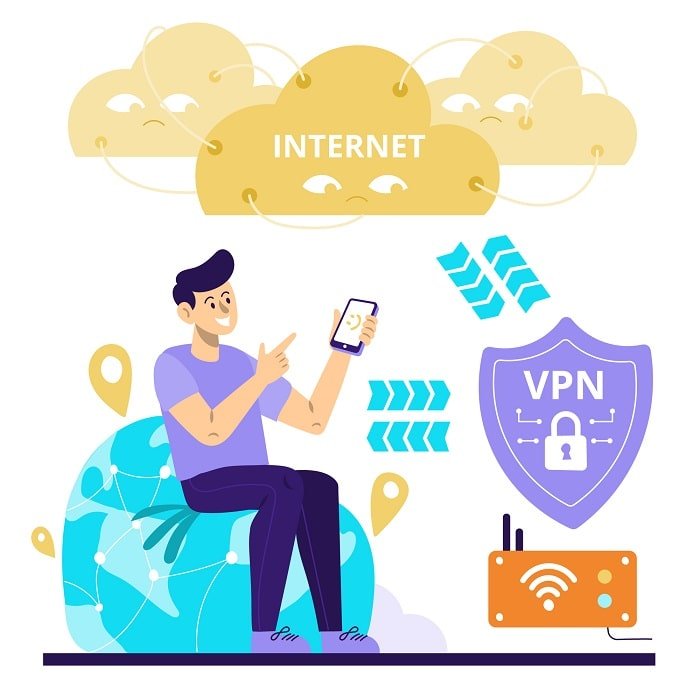
In today’s digital age, cybersecurity has become a critical concern for businesses of all sizes, but particularly for small businesses. Did you know that 43% of cyberattacks target small businesses? This staggering statistic highlights the vulnerability of smaller enterprises in the face of increasing cyber threats. As technology continues to evolve, so do the tactics employed by cybercriminals, making it essential for small businesses to prioritize their cybersecurity measures.
Cybersecurity is not just a technical issue; it is a fundamental aspect of business strategy. Small businesses often lack the resources and expertise to defend against cyber threats effectively. This makes them attractive targets for hackers who exploit their vulnerabilities. The consequences of a cyberattack can be devastating, leading to financial losses, reputational damage, and even legal repercussions. Therefore, understanding and implementing robust cybersecurity practices is crucial for the survival and growth of small businesses.
In this article, we will explore the various facets of cybersecurity for small businesses, including the types of threats they face, why they are targeted, key measures to protect themselves, and the importance of developing a comprehensive cybersecurity plan. By the end of this article, you will have a clearer understanding of how to safeguard your business against cyber threats and why investing in cybersecurity is essential for your success.
Understanding Cybersecurity
Definition of Cybersecurity
At its core, cybersecurity refers to the practices and technologies designed to protect networks, devices, and data from unauthorized access, attacks, or damage. This encompasses a wide range of measures, including:
- Network Security: Protecting the integrity and usability of networks.
- Application Security: Ensuring software and applications are secure from threats.
- Information Security: Safeguarding data from unauthorized access and breaches.
- Operational Security: Protecting the processes and decisions for handling and protecting data assets.
Types of Cyber Threats
Small businesses face various cyber threats that can compromise their security. Here are some of the most common types:
- Phishing: This involves deceptive emails or messages that trick individuals into revealing sensitive information, such as passwords or credit card numbers.
- Ransomware: A type of malware that encrypts a victim’s files, demanding payment for the decryption key.
- Malware: Malicious software designed to harm or exploit any programmable device or network.
- Insider Threats: These occur when employees or contractors misuse their access to company data, either intentionally or unintentionally.
Impact of Cyber Threats on Small Businesses
The consequences of cyber incidents can be severe for small businesses. Here are some potential impacts:
- Financial Loss: Cyberattacks can lead to significant financial losses due to theft, fraud, or the costs associated with recovery efforts.
- Reputational Damage: A breach can erode customer trust and damage a business’s reputation, leading to lost customers and revenue.
- Legal Implications: Non-compliance with data protection regulations can result in hefty fines and legal action.
Why Small Businesses Are Targeted
Perception of Vulnerability
Cybercriminals often perceive small businesses as easy targets. Many small businesses lack the robust security measures that larger enterprises have in place, making them more susceptible to attacks. This perception is fueled by the belief that small businesses are less likely to report incidents or have the resources to recover from them.
Lack of Resources
Small businesses typically operate with limited budgets and resources. This often translates to inadequate cybersecurity measures. Unlike larger companies that can invest in comprehensive security solutions and hire dedicated IT staff, small businesses may struggle to allocate funds for cybersecurity training, software, and infrastructure.
Case Studies
Several small businesses have suffered devastating consequences due to cyberattacks. For instance, a local restaurant fell victim to a ransomware attack that paralyzed its operations for days. The restaurant lost thousands in revenue and faced a significant decline in customer trust. Another example is a small retail store that experienced a data breach, exposing customer credit card information and resulting in legal action.
Key Cybersecurity Measures for Small Businesses
Implementing Strong Password Policies
One of the simplest yet most effective measures is to implement strong password policies. Here’s how:
- Importance of Complex Passwords: Encourage employees to create complex passwords that include a mix of letters, numbers, and symbols.
- Use of Password Managers: Consider using password managers to help employees manage and generate secure passwords.
Regular Software Updates
Keeping software up to date is crucial for maintaining security. Here’s what to consider:
- Importance of Keeping Software Up to Date: Regular updates patch vulnerabilities that cybercriminals can exploit.
- Automatic Updates vs. Manual Updates: Enable automatic updates whenever possible to ensure timely installation of security patches.
Employee Training and Awareness
Educating employees about cybersecurity is vital. Here’s how to approach it:
- Importance of Cybersecurity Training: Regular training sessions can help employees recognize and respond to potential threats.
- Common Phishing Tactics: Teach employees to identify phishing emails and suspicious links to reduce the risk of falling victim to attacks.
Multi-Factor Authentication (MFA)
Implementing Multi-Factor Authentication (MFA) adds an extra layer of security. Here’s how it works:
- What MFA Is: MFA requires users to provide two or more verification factors to gain access to an account, making it harder for unauthorized users to access sensitive information.
Data Backup Solutions
Regular data backups are essential for recovery in case of an attack. Consider the following:
- Importance of Regular Data Backups: Backing up data ensures that you can restore information in the event of a cyber incident.
- Best Practices for Data Recovery: Store backups in multiple locations, including cloud storage and physical drives, to ensure redundancy.
Developing a Cybersecurity Plan
Assessing Current Security Posture
Before implementing new measures, it’s essential to assess your current security posture. Here’s how:
- Conducting a Cybersecurity Audit: Regular audits help identify vulnerabilities and areas for improvement.
- Identifying Vulnerabilities: Use tools and assessments to pinpoint weaknesses in your security infrastructure.
Creating a Response Plan
Having a well-defined response plan is crucial for minimizing damage during a cyber incident. Key components include:
- Importance of Having an Incident Response Plan: A response plan outlines the steps to take in the event of a cyberattack, ensuring a swift and organized reaction.
- Key Components of an Effective Response Plan: Include roles and responsibilities, communication strategies, and recovery procedures.
Engaging with Cybersecurity Professionals
Sometimes, seeking external help is necessary. Here’s when and why:
- When to Seek External Help: If your business lacks the expertise to handle cybersecurity, consider hiring professionals.
- Benefits of Hiring Cybersecurity Consultants: Consultants can provide tailored solutions and insights based on industry best practices.
Legal and Compliance Considerations
Understanding Cybersecurity Regulations
Small businesses must be aware of relevant cybersecurity regulations. Here’s an overview:
- Overview of Relevant Regulations: Familiarize yourself with regulations such as GDPR (General Data Protection Regulation) and CCPA (California Consumer Privacy Act) that govern data protection.
Importance of Compliance
Compliance is not just about avoiding penalties; it’s about building trust. Here’s why it matters:
- Discuss Potential Penalties for Non-Compliance: Non-compliance can lead to significant fines and legal repercussions, impacting your business financially.
Data Protection Policies
Implementing robust data protection policies is essential. Here are some key policies to consider:
- Outline Essential Policies Every Small Business Should Have: Include data access controls, incident response procedures, and employee training protocols.
The Future of Cybersecurity for Small Businesses
Emerging Threats
As technology evolves, so do cyber threats. Here are some anticipated trends:
- Discuss Anticipated Trends in Cyber Threats: Expect to see an increase in sophisticated attacks, such as AI-driven phishing schemes and ransomware targeting critical infrastructure.
Technological Advancements
Technology can also be a powerful ally in cybersecurity. Here’s how:
- Role of AI and Machine Learning in Cybersecurity: These technologies can help detect anomalies and respond to threats in real-time, enhancing overall security.
Building a Cybersecurity Culture
Fostering a proactive cybersecurity culture is essential for long-term success. Here’s how to achieve it:
- Importance of Fostering a Proactive Cybersecurity Mindset: Encourage employees to take ownership of cybersecurity and report suspicious activities.
Conclusion
In summary, the importance of cybersecurity for small businesses cannot be overstated. As cyber threats continue to evolve, small businesses must take proactive steps to protect themselves. By understanding the types of threats they face, implementing key cybersecurity measures, and developing a comprehensive cybersecurity plan, small businesses can significantly reduce their risk of falling victim to cyberattacks.
Now is the time to assess your cybersecurity measures and take action. Investing in cybersecurity is not just about protection; it’s about building trust with your customers and ensuring the longevity of your business. Remember, a secure business is a successful business!















































